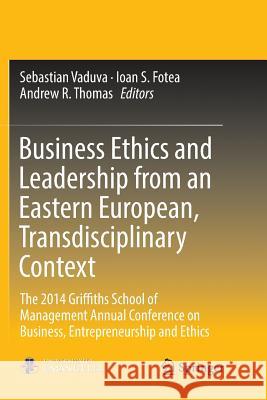Business Ethics and Leadership from an Eastern European, Transdisciplinary Context: The 2014 Griffiths School of Management Annual Conference on Busin » książka
topmenu
Business Ethics and Leadership from an Eastern European, Transdisciplinary Context: The 2014 Griffiths School of Management Annual Conference on Busin
ISBN-13: 9783319832326 / Angielski / Miękka / 2018 / 169 str.
Business Ethics and Leadership from an Eastern European, Transdisciplinary Context: The 2014 Griffiths School of Management Annual Conference on Busin
ISBN-13: 9783319832326 / Angielski / Miękka / 2018 / 169 str.
cena 403,47
(netto: 384,26 VAT: 5%)
Najniższa cena z 30 dni: 385,52
(netto: 384,26 VAT: 5%)
Najniższa cena z 30 dni: 385,52
Termin realizacji zamówienia:
ok. 22 dni roboczych.
ok. 22 dni roboczych.
Darmowa dostawa!
Kategorie:
Kategorie BISAC:
Wydawca:
Springer
Język:
Angielski
ISBN-13:
9783319832326
Rok wydania:
2018
Wydanie:
Softcover Repri
Ilość stron:
169
Waga:
0.26 kg
Wymiary:
23.39 x 15.6 x 0.97
Oprawa:
Miękka
Wolumenów:
01
Dodatkowe informacje:
Wydanie ilustrowane











